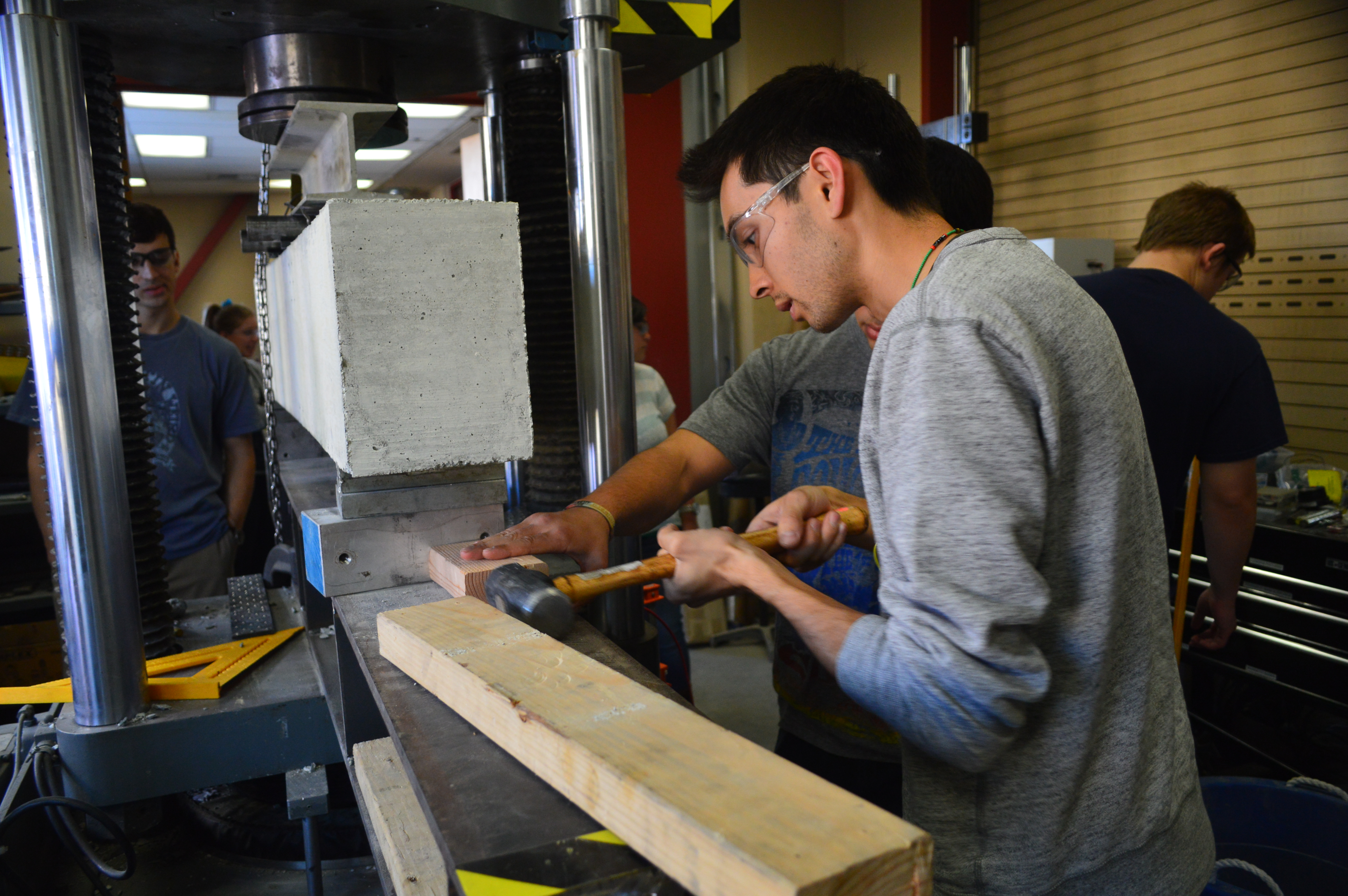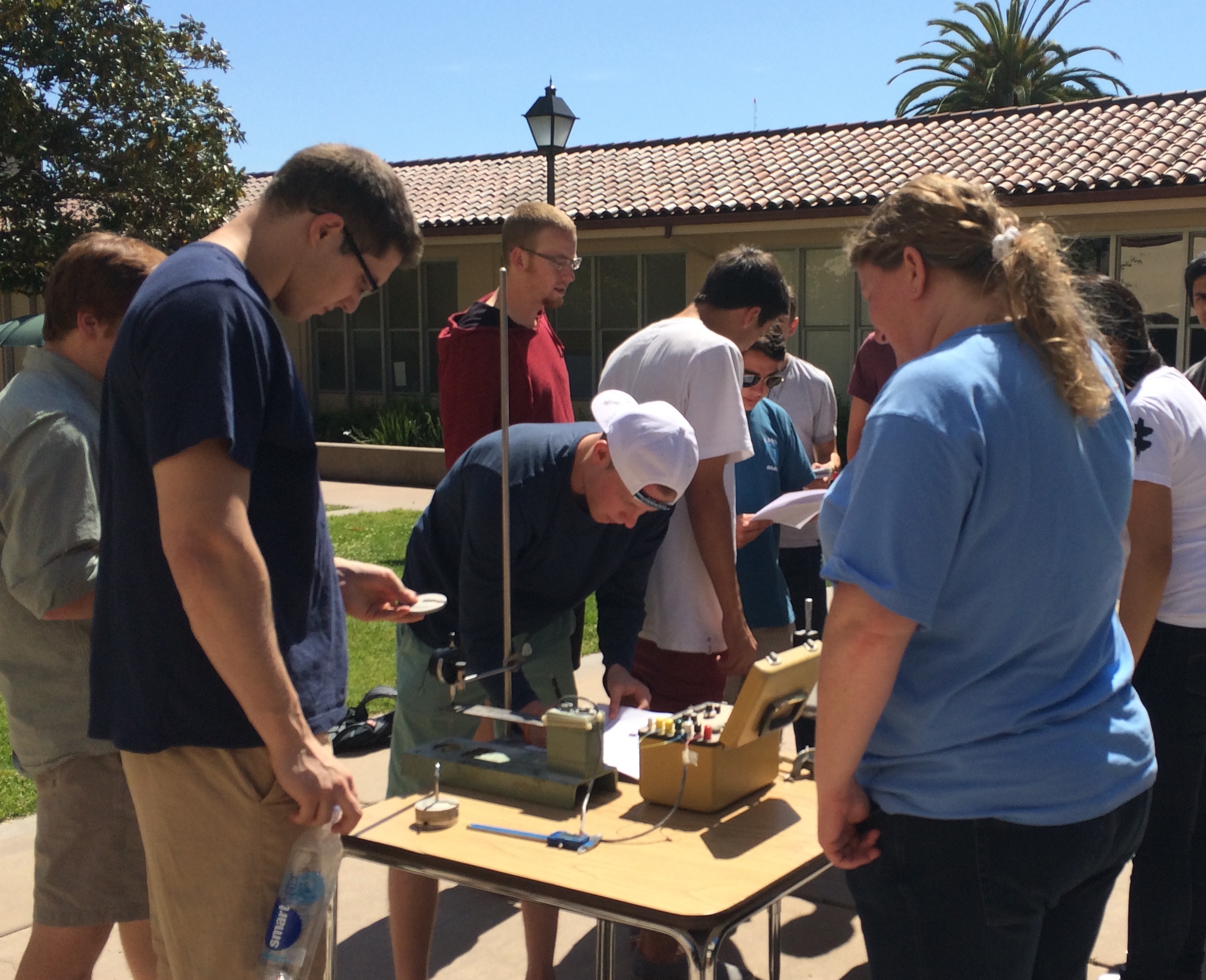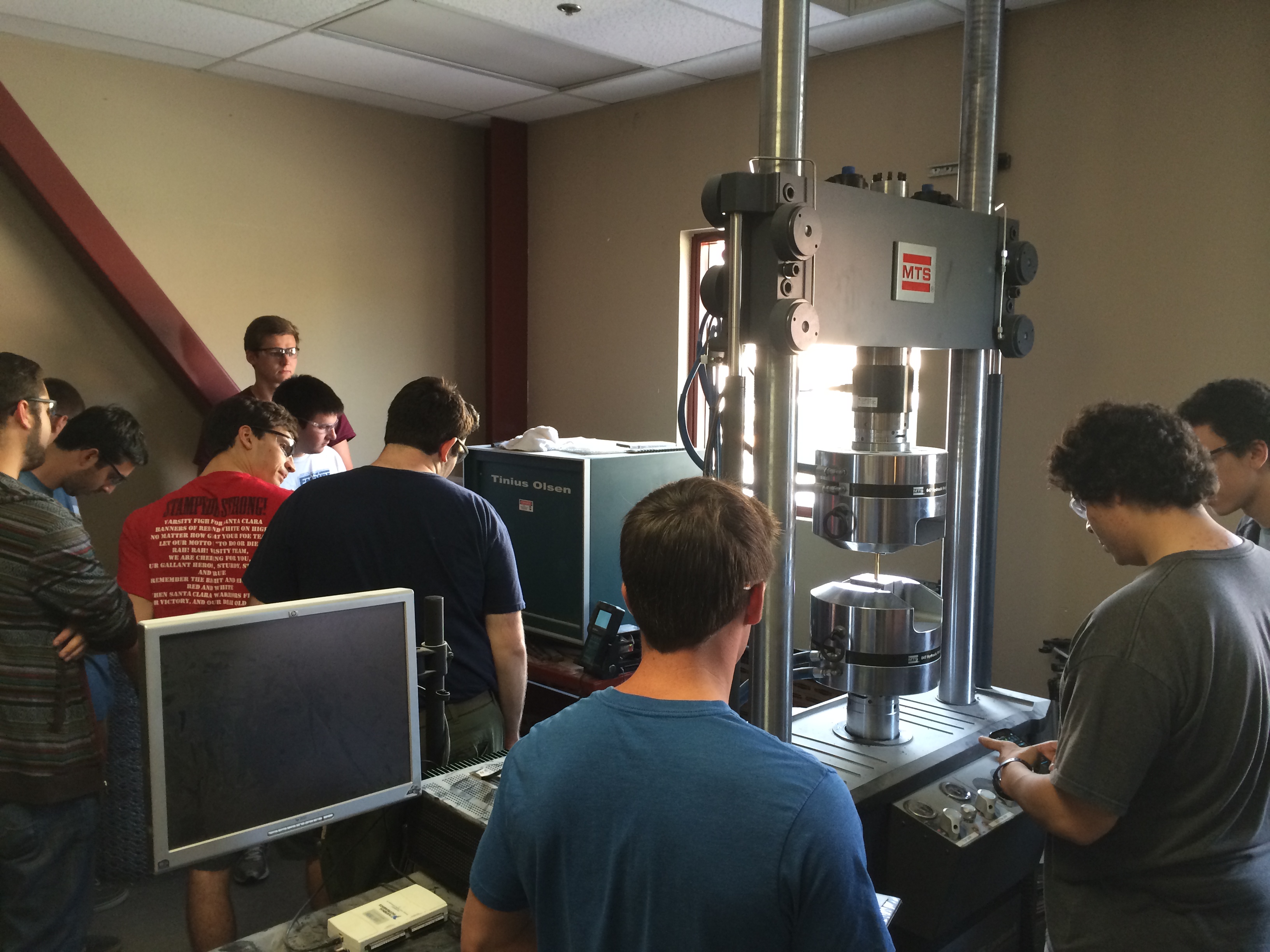Simulation and Design Laboratories are maintained by the Engineering Computing Center as a cluster of lab spaces running all major operating systems. Civil, Environmental and Sustainable Engineering relies primarily on the Windows-based computers, which are available for course assignments, design projects, and research activities. Commercial software packages in all the major areas of civil engineering are available on the systems.
Located at SCDI 1317 and 1318, the Environmental Research and Teaching Laboratories consist of connected teaching and research facilities. The lab is equipped with instrumentation needed for basic chemical and biological characterization of water, wastewater, and air samples. State-of-the-art analytical instrumentation is available for environmental teaching and research in the SCDI facilities.
Sharing SCDI 1322 with the Geotechnical Engineering Lab, the Geology Lab is equipped with tools for identifying rocks and minerals including stereo glasses for studying aerial photographs. The lab also features equipment for demonstrating geophysical/seismic methods and for subsurface investigations. There is an extensive collection of rock and mineral samples and topographic and geologic maps of California.
The Hydraulics Laboratory is shared with the Mechanical Engineering Department and contains a variety of equipment for visualizing and testing fluid behavior. Equipment includes a hydraulic bench for experiments demonstrating concepts such as the conservation of energy and friction loss in a pipe. A pump lab includes an integrated data acquisition system to study pump behavior, and a tilting flume can be fitted with various open-channel fixtures to study flow in canals and rivers.
Located at SCDI 1322, the Geotechnical Engineering Lab features equipment for testing soils in shear, consolidation, and compaction; equipment for other physical and chemical tests; field testing and sampling equipment; and a complete cyclic triaxial testing system with computer controls used for both research and instructional purposes.
The Alameda Hall and Pittsburg Annex Structural Laboratories have three strong floors and equipment for conducting research on a variety of structural configurations and loading conditions. Undergraduate and graduate students engage with faculty and industry professionals to study a variety of structural systems and building materials. With five actuators, and MTS and Pacific Instruments data acquisition and control systems, pseudo-dynamic loading up to 300,000 lbs. and high speed dynamic testing at loads up to 50,000 lbs. can be accommodated in these laboratories. A universal testing machine capable of 400,000 lbs. quasi-static loading is also available. Dedicated instrumentation is available for monitoring and measuring strain, displacement, force, acceleration, angle, and pressure. The labs also have facilities for mixing, casting, curing, and testing concrete cylinders and a fully equipped workshop is available for fabrication of test components and assemblies.
Located at SCDI 1321, the Mechanical Testing and Failure Analysis Lab is equipped with two universal testing machines. Both graduate and undergraduate students work with faculty to explore and evaluate the performance of traditional and new methods and materials of construction, and innovative small scale structural assemblies and connections to assess their ability to meet current safety and damage standards. The universal testing machines are capable of delivering up to 110,000 lbs. under quasi-static and quasi-dynamic loading. Complementing this equipment are high-speed data acquisition and control systems and digital and analog instruments capable of measuring strain, displacement, force, and pressures.
The Surveying Laboratory has a wide variety of equipment including automatic levels, digital theodolites, total stations, and GPS-based surveying instruments available for instructional purposes.
The Traffic Laboratory has electronic volume counters that are used in studies to classify vehicles and measure their speeds in user-specified ranges and periods of time. This equipment is used for instructional and research purposes. The lab also has computers equipped with large scale traffic simulation software and signal design software. Undergraduate and graduate students use the laboratory as an integral part of their transportation and traffic engineering coursework and examine different traffic management strategies for their capstone design projects.


